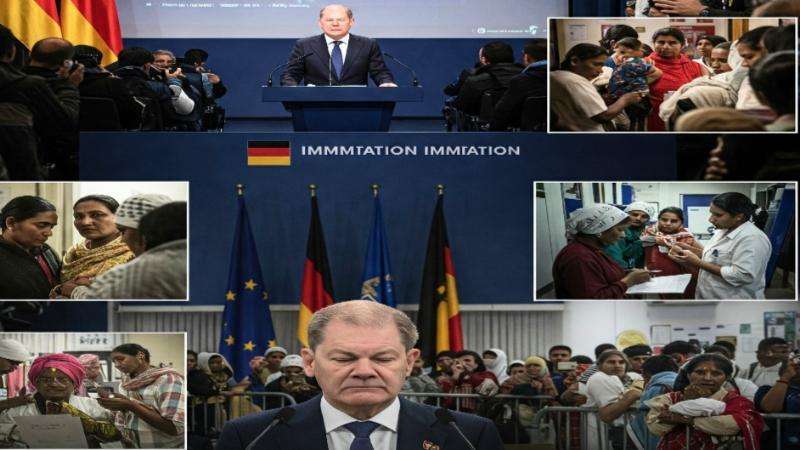German Chancellor Friedrich Merz is poised to declare a "national emergency" on migration, a move that would invoke Article 72 of the EU treaties and potentially allow Germany to suspend asylum regulations. This decision, aimed at curbing the influx of asylum seekers, has triggered concerns of a diplomatic rift with neighboring EU nations like Poland, Austria, and Switzerland, who fear it undermines the principle of open internal borders. Merz, leader of the center-Right Christian Democrats (CDU), argues that Germany's capacity to receive migrants is "overwhelmed," despite recent statistics showing a 30% decrease in asylum applications, Daily Dazzling Dawn understand.
The declaration, if enacted, would require Merz to demonstrate to EU member states that the current migration levels pose a severe threat to Germany's internal security and order. The move also faces potential resistance from the CDU's coalition partners, the center-Left Social Democrats (SPD), whose agreement stipulates that asylum seeker rejections must be coordinated with neighboring countries.
The situation is further complicated by the rise of the far-Right Alternative for Germany (AfD), which has been pressuring the government for stricter migration policies. The AfD, now the de facto opposition, has faced scrutiny for its divisive rhetoric and alleged ties to extremist ideologies. The German domestic intelligence service's attempt to classify the AfD as a Right-wing extremist group, though temporarily paused, highlights the political tensions surrounding immigration in Germany.
The revocation of a 2015 order that allowed asylum seekers to enter Germany without residency papers, a decision justified by the government as legally sound, signifies a hardening stance on migration. This policy shift indicates a move towards turning away individuals who have already secured refugee status in other safe EU countries.
Impact on South Asian and African Immigrants:This potential national emergency declaration and the accompanying policy shifts will have a significant impact on South Asian (Indian, Pakistani, Bangladeshi, Sri Lankan, Nepali) and African immigrant communities in Germany.
Increased Scrutiny and Discrimination: The heightened focus on migration can lead to increased scrutiny and discrimination against all immigrant communities, regardless of their legal status. This could manifest in increased police checks, stricter enforcement of residency laws, and a rise in xenophobic sentiment.
Reduced Asylum Opportunities: The invocation of Article 72 and the tightening of asylum regulations will significantly reduce the opportunities for individuals from these regions to seek refuge in Germany. This could leave vulnerable populations exposed to persecution and instability in their home countries.
Impact on Existing Communities: Even those with legal residency may experience increased anxiety and fear due to the changing political climate. The focus on migration can create a sense of insecurity and marginalization within established immigrant communities.
Economic and Social Integration Challenges: The hardening stance on migration could hinder the economic and social integration of South Asian and African immigrants. Increased restrictions and discrimination could limit their access to employment, housing, and education.
Family Reunification Difficulties: Stricter migration policies often make family reunification more challenging, potentially separating families and creating additional hardship.








.svg)


